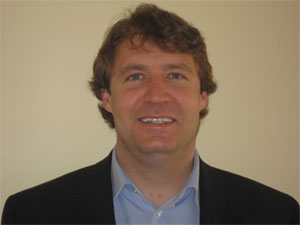|
The IADIS International Conference e-Learning 2007 (part of the IADIS Multi Conference on Computer Science and Information Systems) was held in Lisbon, Portugal, 6-8 July, 2007
  
The purpose of this Conference was to address the main issues of concern within e-Learning, trying to enclose both technical as well as the non-technical aspects of e-Learning.
The IADIS e-Learning 2007 Conference received 342 submissions from more than 39 countries. Each submission had been blindly reviewed by an average of three independent reviewers, to ensure that accepted submissions were of a high standard. Consequently, only 68 full papers were approved which meant an acceptance rate below 20 %. A few more papers were accepted as short papers, reflection papers and posters.
The submissions were accepted under the following main areas and topics:
Organisational Strategy and Management Issues
- Higher and Further Education
- Primary and Secondary Education
- Workplace Learning
- Vocational Training
- Home Schooling
- Distance Learning
- Blended Learning
- Change Management
- Educational Management
- Continuous Professional Development (CPD) for Educational and Training Staff
- Return on e-Learning Investments (ROI)
Technological Issues
- Learning Management Systems (LMS)
- Managed Learning Environments (MLEs)
- Virtual Learning Environments (VLEs)
- Computer-Mediated Communication (CMC) Tools
- Social Support Software
- Architecture of Educational Information Systems Infrastructure
- Security and Data Protection
- Learning Objects
- XML Schemas and the Semantic Web
- Web 2.0 Applications
e-Learning Curriculum Development Issues
- Philosophies and Epistemologies for e-learning
- Learning Theories and Approaches for e-learning
- e-Learning Models
- Conceptual Representations
- Pedagogical Models
- e-Learning Pedagogical Strategies
- e-Learning Tactics
Instructional Design Issues
- Designing e-Learning Settings
- Developing e-Learning Pilots and Prototypes
- Creating e-Learning Courses
- Collaborative learning
- Problem-based learning
- Inquiry-based learning
- Blended learning
- Distance learning
- Designing e-Learning Tasks
- E-learning activities
- Online Groupwork
- Experiential learning
- Simulations and Modelling
- Gaming and edutainment
- Creativity and design activities
- Exploratory programming
- Developing e-Learning for Specific Subject Domains
e-Learning Delivery Issues
- e-Delivery in different contexts
- Higher and Further Education
- Primary and Secondary Schools
- Workplace Learning
- Vocational Training
- Distance Learning
- Online Assessment
- Innovations in e-Assessment
- e-Moderating
- e-Tutoring
- e-Facilitating
- Leadership in e-Learning Delivery
- Networked Information and Communication Literacy Skills
- Participation and Motivation in e-Learning
e-Learning Research Methods and Approaches
- Action Research
- Design Research
- Course and Programme Evaluations
- Systematic Literature Reviews
- Historical Analysis
- Case Studies
- Meta-analysis of Case Studies
- Effectiveness and Impact Studies
- Evaluation of e-Learning Technologies
- Evaluation of Student and Tutor Satisfaction
- Learning and cognitive styles
- Ethical Issues in e-learning
In addition to the presentation of full, short and reflection papers and posters which divided the conference program in 29 parallel sessions, the conference also included two keynote presentations from internationally distinguished researchers (Professor George Siemens, Associate Director, R&D Learning Technologies Centre, University of Manitoba, Canada, and Professor Gráinne Conole, The Institute of Educational Technology, The Open University, UK).
Keynotes Presentations:
K1 - MAKING SENSE OF TODAY'S TECHNOLOGY-ENHANCED ENVIRONMENT FOR LEARNING: RETHINKING STUDENT AND TEACHER ROLES by
 Professor Gráinne Conole, The Institute of Educational Technology, The Open University, UK Professor Gráinne Conole, The Institute of Educational Technology, The Open University, UK
Abstract:
Technological innovations and new products and tools continue to develop at a phenomenal rate. The terminology associated with these changes are beginning to spill over into the mainstream – phrases such as 'podcasts', 'blogs', 'Myspace', 'YouTube' etc. unheard of by most of us a couple of years ago now pepper news presentations and even radio four broadcasts! 'Web 2.0' has become synonymous with this more interactive, peer-generated and collaborative Internet. Many argue that the new possibilities of these social networking tools are resulting in a fundamental shift in the way we work and learn. Rich immersive virtual environments such as 'Second Life' are exciting educators in terms of the possibilities they offer for learning.
Teachers and students are therefore faced with an increasingly complex and rich technology-enhanced environment for teaching and learning. This offers tremendous opportunities but also poses problems in terms of how to maximise the potential affordances of these new tools to create stimulating and engaging learning environments.
Recent research on students' experience of using technologies shows that they are very comfortable in this technology-enriched fast moving environment. 'Google', 'Wikipedia', 'Email', and 'MSN chat' are core tools to support their learning. Today's students are sophisticated users who appropriate the technologies to their own needs. The implications for educational institutions both in terms of the technological infrastructure we provide and the way in which we support learners is profound.
The presentation aims to consider the factors which make up this new dynamic, technology rich environment. It will consider both the teacher and student perspectives – offering suggestions on how we need a new approach to the design and delivery of learning activities to maximise the potential affordances of the range of abundant range of tools and resources available to help teachers facilitate and scaffold learning and for learners to appropriate these tools and resources for their own personalised learning needs.
K2 - APOPHENIA: UNDERSTANDING AND MEANING IN INFORMATION ABUNDANCE By
 Prof. George Siemens, Associate Director, R&D Learning Technologies Centre, University of Manitoba, Canada Prof. George Siemens, Associate Director, R&D Learning Technologies Centre, University of Manitoba, Canada
Abstract:
Several decades of exponential information growth has forced changes to the tools and methods we use to stay current. But change is beginning to outpace our ability to cope. Social technologies, shift to user-created content, two-way flow of information and increased openness require a significant shift in how we function as individuals and organizations. We are starting to utilize first-generation technologies and processes that represent patterns and connections between information elements, not only the elements themselves. As evidenced by participatory news sites, tag/information clouds, the collective actions of many can provide a new way of filtering, sorting, and making sense of abundance - we are extracting meaning based on connections. What types of changes are required within our organizations today to adopt democratic approaches reflective of our emerging needs?
Extended versions of the best papers of the Conference were published in the International Journal of Information and Communication Technology Education (ISSN: 1550-1876) and in the in the IADIS International Journal on Computer Science and Information Systems (ISSN: 1646-3692).
These were the four papers that had stood out:
Best Research Paper:
RESURRECTING GRADUATE CONVERSATION THROUGH AN ONLINE LEARNING COMMUNITY by Brian Thoms, Nathan Garrett, Mariana Soffer and Terry Ryan, Claremont Graduate University, USA
Abstract:
This paper reports on action research that implements online learning community (OLC) software to foster conversation at a specific graduate school. The design of the research is informed by theories of conversation, online learning, and social networking, as well as by popular Web 2.0 technologies. A distinguishing feature of this application is that it is oriented towards and controlled by individuals, rather than being centered on courses. Results indicate that stakeholders—graduate students and faculty—appreciate and find value in the OLC we implemented.
Best Emergent Idea:
LEARNING OBJECT METADATA GENERATION IN THE WEB 2.0 ERA by Daniel Dahl and Gottfried Vossen, Universität Münster, Germany
Abstract:
When introducing the metadata standard LOM, objectives such as the ability to find or to reuse learning objects were followed. These objectives are actually achieved in LOM only to a limited degree, despite the designation as de-facto standard for description of electronic learning content: Based on the complexity of the standard a high theoretical potential faces rejection in practice. One reason for this is that the process of metadata generation - for example, who creates which metadata attributes - is not defined in detail yet. This paper illustrates an approach which guarantees a high quantity as well as a high quality of learning object metadata records bringing together known ways of metadata creation and the new paradigm of users describing content as implemented in recent Web 2.0 applications. In the context of a concrete e-learning platform we exemplarily define who creates which metadata records of LOM in which way at what time.
Best Practice Paper:
AN ANALYSIS OF IRISH PRIMARY SCHOOL CHILDREN´S INTERNET USAGE AND THE ASSOCIATED SAFETY IMPLICATIONS by Derek O' Reilly and Caroline O' Neill, Dundalk Institute of Technology, Ireland
Abstract:
The internet is becoming widely available and increasingly important in the modern world. Because of this, it is very important that children start to familiarize themselves with the internet at a young age. As technology is becoming increasingly part of our daily lives, computers and the internet have been adopted into schools. The sea of information and learning activities available on the internet has the potential to greatly help in the development of young minds.
However, the question remains as to how safe an environment the internet is for young children. Children might not see any dangers beyond the physical environment where they live. Therefore, the internet can be an unsafe place for them to venture into. Children can be targeted by a wide number of internet risks. For these reasons, the problem of how to keep children who are using the internet safe must be solved.
This paper identifies the potential risks associated with primary school children using the internet. This paper evaluates the level of understanding of internet safety that children have. We identify what children use the internet for and what information that they are willing to reveal while online.
The findings of this paper are based on analysis of a survey carried out on 645 Irish primary school children in February 2007.
Best Position Paper:
ENGAGING WITH E-LEARNING: EMERGING EPISTEMOLOGIES AND INCREASED PEDAGOGIC VISION IN HIGHER EDUCATION by Geoffrey Lautenbach, University of Johannesburg, South Africa
Abstract:
This paper reports on part of a larger inquiry at a Higher Education Institution (HEI) into how engagement with elearning manifests itself in change in epistemology and pedagogy of lecturers in an Education Faculty. We explore possible reasons for varying engagement with e-learning, assuming that these reasons are located within the dimensions of the unit of analysis of the study, namely, lecturers' changing theories of knowledge and teaching in first encounters with e-learning. We argue that although lecturers delve into the 'shallow waters' of e-learning they do not do so in sufficient depth and resign themselves to the perpetuation of cognitivist, behaviourist and objectivist forms of knowledge without discovering more about the medium that could possibly liberate their restricted epistemologies. Moreover, those lecturers who experience epistemological and pedagogical change will develop and fill, if only emergently, some form of niche in their work environment. In doing so they begin to exemplify what Nardi and O'Day (1999) refer to as "keystone species" in the establishment of learning and information ecologies in their workplace. Excerpts from personal narratives highlight the epistemological and pedagogical changes of nine such lecturers.
The e-Learning Conference 2007 was published both in Book (ISBN: 978-972-8924-34-8) and CD-ROM (ISBN: 978-972-8924-38-6).
Program Committee:
Program Chairs:
- Miguel Baptista Nunes, University of Sheffield, United Kingdom
- Maggie McPherson, University of Leeds, United Kingdom
Conference Co-Chairs:
- Piet Kommers, University of Twente, The Netherlands
- Pedro Isaías, Universidade Aberta (Portuguese Open University), Portugal
- Nian-Shing Chen, National Sun Yat-sen University, Taiwan
Committee Members:
- Adel Elsayed, University of Bolton, United Kingdom
- Agapi Vavouraki, Hellenic Pedagogical Institute, Greece
- Ahmet Demirbilek, Wisconsin Career Academy, USA
- Ana Nolla, University of New Mexico, USA
- Andreas Bollin, Klagenfurt University, Austria
- Andrew Lian, Western Illinois University, USA
- Airina Volungeviciene, Kaunas University of Technology, Lithuania
- Alan Hogarth, Glasgow Caledonian University, UK
- Alexandra Cristea, University of Warwick, UK
- Alexei Tretiakov, Massey University, New Zealand
- Ali Fawaz Shareef, Maldives College of Higher Education, Maldives
- Amali Weerasinghe, University of Canterbury, New Zealand
- Amjad Mahmood, University of Bahrain, Bahrain
- Andreas Papasalouros, University of the Aegean, Greece
- Angélica de Antonio, Universidad Politecnica de Madrid, Spain
- Antonio Navarro, Universidad Complutense de Madrid, Spain
- Avgoustos Tsinakos, Department of Industrial Informatics, Greece
- Beatriz Fainholc, Fundación del CEDIPROE, Uruguay
- Bill Railer, Canadian Defence Academy, Canada
- Brian Lake, Robert Gordon University, United Kingdom
- Bruno Warin, Université du Littoral Côte d'Opale, France
- Cecilia Ruiz, Universidad de Murcia, Spain
- Cengiz Hakan Aydin, Anadolu University, Turkey
- Charalampos Karagiannidis, University of Thessaly, Greece
- Charl Fregona, Durban University of Technology, South Africa
- Charoula Angeli, University of Cyprus, Cyprus
- Christine Levy, Kaleidoscope Learning, USA
- Christos Bouras, University of Patras, Greece
- Chunsheng Yang, National Research Council of Canada, Canada
- Claudia Steinberger, Klagenfurt University, Austria
- Claudine Toffolon, Université du Littoral, Calais, France
- Concepción Yániz, Universidad de Deusto, Spain
- Danguole Rutkauskiene, Kaunas University of Technology, Lithuania
- David Millard, University of Southampton, United Kingdom
- Demetrios Sampson, Center for Research and Technology - Hellas, Greece
- Demosthenes Akoumianakis, Technological Educational Institute of Crete, Greece
- David Guralnick, Kaleidoscope Learning, USA
- Edward Wantuch, Cracow University of Technology, Poland
- Elarbi Badidi, United Arab Emirates University, United Arab Emirates
- Elena Dorrego, Universidad Central de Venezuela, Venezuela
- Elena Mosa, INDIRE, Italy
- Eric Schoop, Dresden University of Technology, Germany
- Eshaa M. Alkhalifa, University of Bahrain, Bahrain
- Esma Aimeur, University of Montréal, Canada
- Eva Heinrich, Massey University, New Zealand
- Eva Jereb, University of Maribor, Slovenia
- Eva Martínez Caro, Universidad Politécnica de Cartagena, Spain
- Eyas El-Quwasmeh, University in Jordan, Jordan
- Ezendu Ariwa, London Metropolitan University, United Kingdom
- Filomena Ferrucci, University of Salerno, Italy
- Francesca Pozzi, Istituto Tecnologie Didattiche –CNR, Italy
- Francesca Puddu, Istituto Tecnologie Didattiche – CNR, Italy
- Francilene Greyling, University of Johannesburg , South Africa
- Fuhua Lin, Athabasca University, Canada
- Gary Wills, University of Southampton, United Kingdom
- Geoff Lautenbach, University of Johannesburg, South Africa
- George Papadourakis, Technological Educational Institute of Crete, Greece
- George Tsihrintzis, University of Piraeus, Greece
- Giampaolo Chiappini, Istituto Tecnologie Didattiche – CNR, Italy
- Gilbert Cleeton, Walden University, USA
- Giuliana Dettori, ITD-CNR, Italy
- Giusy Cannella, INDIRE., Italy
- Gonzalo Méndez Pozo, Universidad Complutense de Madrid, Spain
- Gottfried Vossen, University of Muenster, Germany
- Hasan Çalışkan, Anadolu University, Turkey
- Hugh Davis, University of Southampton, UK
- Ibrahim Suliman Ahmed, International Islamic University, Malaysia
- Ignacio Aedo, Universidad Carlos III de Madrid, Spain
- Ioan Jurca, Universitatea "Politehnica" Timisoara, Romania
- Ioan Salomie, Technical University of Cluj-Napoca, Romania
- Jaakko Kurhila, University of Helsinki, Finland
- Jacques Dang, HEC Paris, France
- Jackeline Spinola de Freitas, Universidade Estadual de Campinas, Brazil
- Jaime Ramírez, Universidad Politécnica de Madrid, Spain
- Jari Lavonen, University of Helsinki, Finland
- Jarkko Suhonen, University of Joensuu, Finland
- Jarko Lampiselkä, University of Helsinki, Finland
- Jesualdo Tomás Fernández Breis, University of Murcia, Spain
- Jesús Salinas Ibáñez, Universidad de las Islas Baleares, Spain
- Jesús Sánchez Allende, Universidad Alfonso X el Sabio, Spain
- John Biggam, Glasgow Caledonian University, UK
- John Stav, Sor-Trondelag University College, Norway
- Jörgen Lindh, Jonkoping International Business School, Sweden
- Jorge Werthein, ASIVE, Brazil
- José Bravo, Universidad de Castilla-La Mancha, Spain
- José Gregorio De Llano, Universidad Católica Andrés Bello, Venezuela
- José Luis Sierra, Universidad Complutense de Madrid, Spain
- Juan Manuel Santos-Gago, ETSE Telecomunicación, Spain
- Julian Newman, Glasgow Caledonian University, UK
- Julia Sonnberger, e-learning center TU Darmstadt, Germany
- Jutta Pauschenwein, ZML, FH Joanneum, Austria
- Kai Pata, University of Tallinn, Estonia
- Kalle Juuti, University of Helsinki, Finland
- Katerina Kabassi, University of Piraeus, Greece
- Kazunori Nozawa, Ritsumeikan University, Japan
- Kevin Johnson, University of Limerick, Ireland
- Khalid Rouane, Virtuel-Age International, Canada
- Kinshuk, Athabasca University, Canada
- Klas Gäre, School of Mathematics and System Engineering, Sweden
- Konrad Morgan, University of Bergen, Norway
- Lampros Stergioulas, Brunel University, UK
- Larbi Esmahi, Athabasca University, Canada
- Larissa Zaitseva, Riga Technical University, Latvia
- Lasse Lipponen, University of Helsinki, Finland
- Lauri Malmi, Helsinki University of Technology, Finland
- Leonardo Garrido, Tecnológico de Monterrey, Mexico
- Lester Gilbert, University of Southampton, United Kingdom
- Lina Markauskaite, University of Sydney, Australia
- Linda van Ryneveld, Tshwane University of Technology, South Africa
- Liliana Santacruz, Alfonso X El Sabio University, Spain
- Lily Sun, The University of Reading, UK
- Lisette Poggioli, Universidad Católica Andrés Bello, Venezuela
- Lorraine Cleeton, Walden University, USA
- Lourdes Villardón, Universidad de Deusto, Spain
- Ludmila Layne, Universidad Nacional Experimental Simon Rodriguez, Venezuela
- Luigi Sarti, Istituto per le Tecnoologie Didattiche, Italy
- Luis Anido-Rifón, University of Vigo, Spain
- Maiga Chang, Chung-Yuan Christian Univ., Taiwan
- Manolis Tsiknakis, FORTH, Greece
- Manuela Delfino, Istituto Tecnologie Didattiche – CNR, Italy
- Manuela Repetto, Istituto Tecnologie Didattiche – CNR, Italy
- Manuel Caeiro-Rodríguez, University of Vigo, Spain
- Marcelo Milrad, Växjö University, Sweden
- Marek Stanuszek, Cracow University of Technology, Poland
- Maria Rigou, Patras University, Greece
- Maria Virvou, University of Piraeus, Greece
- Mari Pete, Durban University of Technology, South Africa
- Martín Llamas-Nistal, University of Vigo, Spain
- Martin Stigmar, Växjö University, Sweden
- Martin Wolpers, Katholieke Universiteit Leuven, Belgium
- Mary Gobbi, University of Southampton, UK
- Matti Lattu, University of Helsinki, Finland
- Michael Derntl, University of Vienna, Austria
- Michael E. Auer, Carinthia Tech Institute, Austria
- Michael Paraskevas, University of Patras, Greece
- Michail Kalogiannakis, University Paris 5, France
- Michele Cerulli, Istituto per le Tecnologie Didattiche (ITD), Italy
- Miguel Zapata Ros, University of Murcia, Spain
- Mike Joy, University of Warwick, United Kingdom
- Ming Hou, Defence R&D Canada (DRDC), Canada
- Mirjana Ivanovic, University of Novi Sad, Serbia
- Mizue Kayama, Senshu University, Japan
- Mohamed Ally, Athabasca University, Canada
- Mónica Luque, Educational Portal of the Americas, Argentina
- Muhammet Demirbilek, Suleyman Demirel University, Turkey
- Mujgan Bozkaya, Anadolu University, Turkey
- Murat Ataizi, Anadolu University, Turkey
- Murat Barkan, Anadolu University, Turkey
- Natalia Stash, Technische Universiteit Eindhoven, Netherlands
- Nayesia Hernández, Universidad Central de Venezuela, Venezuela
- Nayna Patel, Brunel University, United Kingdom
- Neal Sumner, City University, United Kingdom
- Nirmi Ziegler, Durban University of Technology, South Africa
- Nora Lizenberg, CIBADIST, Argentina
- Oliver Bohl, University of Kassel, Germany
- Oktay Ibrahimov, Institute of Cybernetics, National Academy of Sciences, Azerbaijan
- Panagiotes Anastasiades, University of Crete, Greece
- Patrick Blum, Inside Business Group, Germany
- Patrick Blumschein, University of Freiburg, Germany
- Patrick Johnscher, Technische Universität Darmstadt, Germany
- Paola Forcheri, IMA-CNR, Italy
- Paolo Manzelli, University of Florence, Italy
- Penne Wilson, University of New Mexico, USA
- Peter Westerkamp, Westfälische Wilhelms-Universität Münster, Germany
- Pilar Moreno Díaz, Alfonso X El Sabio University, Spain
- Rafael Alejandro Calvo, University of Sydney, Australia
- Rafael Valencia, Universidad de Murcia, Spain
- Ralf Klamma, RWTH Aachen University, Germany
- Ramón Brena, Monterrey Institute of Technology (ITESM), Mexico
- Reinaldo Martinez, Universidad Católica Andrés Bello, Venezuela
- Ricardo Imbert, Universidad Politécnica de Madrid, Spain
- Roland Kaschek, Massey University, New Zealand
- Roland Seneor, Ecole Polytechnique, France
- Rosa Maria Bottino, CNR, Italy
- Rubén Edel Navarro, Universidad Veracruzana, México
- Sharon Role, University of Malta, Malta
- Shirley Williams, University of Reading, UK
- Silke Seehusen, University of Applied Sciences Luebeck, Germany
- Sobah A. Petersen, Norwegian University of Science and Technology, Norway
- Som Naidu, University of Melbourne, Australia
- Spiros Sirmakesis, Computer Technology Institute, Greece
- Stanislaw Wrycza, University of Gdansk, Poland
- Stavros Demetriadis, Aristotle University of Thessaloniki, Greece
- Stefania Manca, Istituto per le Tecnologie Didattiche, Italy
- Stephen J.H. Yang, National Central University, Taiwan
- Susan Moisey, Athabasca University, Canada
- Su White, University of Southampton, UK
- Symeon Retalis, University of Piraeus, Greece
- Taher Homeed, University of Bahrain, Bahrain
- Tanja Mitrovic, University of Canterbury, New Zealand
- Terje Väljataga, Tallinn University, Estonia
- Timothy Hall, University of Limerick, Ireland
- Thrasivoulos Tsiatsos, University of Patras, Greece
- Ulf Melin, Linkoping University, Sweden
- Valery A. Petrushin, Accenture Technology Labs, USA
- Vassilakis Kostas, Technological Educational Institution of Crete, Greece
- Willem-Paul Brinkman, Brunel University, UK
- Wolfram Laaser, FernUniversität in Hagen, Germany
- Xiaokun Zhang, Athabasca University, Canada
- Yannis Psaromiligkos, Technological Education Institute of Piraeus, Greece
- Yubin Yang, University of New South Wales, Australian Defence Force Academy, Australia
|



 Professor Gráinne Conole, The Institute of Educational Technology, The Open University, UK
Professor Gráinne Conole, The Institute of Educational Technology, The Open University, UK Prof. George Siemens, Associate Director, R&D Learning Technologies Centre, University of Manitoba, Canada
Prof. George Siemens, Associate Director, R&D Learning Technologies Centre, University of Manitoba, Canada